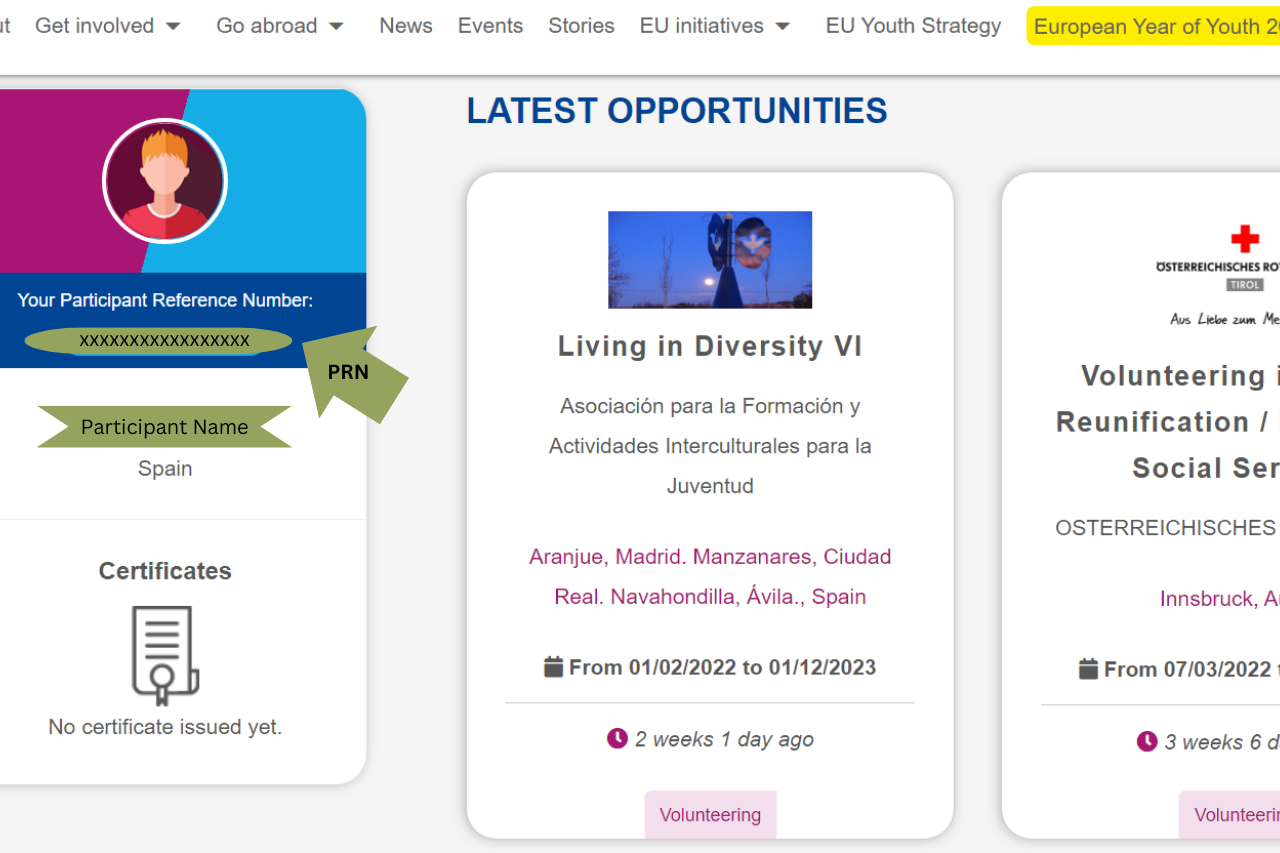
First steps
- The first thing you need to do in order to participate in European volunteering is to register on the ESC portal. Once registered you will find your PRN (Participant Reference Number) on the left hand side of your main menu. This number will be important in case you are selected to participate in any project, as the sending associations will ask for it in order to register you as a volunteer.
- The next step is to look for opportunities that match your interests. On the ESC website there is a section of opportunities where you can find a large number of them. Another option to find opportunities is to follow local ESC associations on social networks, as many of them publish offers from associations with which they collaborate. Each organisation may require different documents in order to apply with them for a project, the most common ones are: CV, Motivation letter and Online form.
- Once you have applied to the projects that are most relevant to your interests, you will usually have an online interview with the host organisation. In some cases you will first conduct an interview with the organisation coordinating the project, and in case you are considered a good candidate, a second interview will be conducted with the host organisation.
*Learn more about organisations in lesson 5.
You have been selected! Now what?
Once you have been selected, the host organisation will usually contact you to give you the good news and send you documentation to fill in. The first thing you should do, if you don’t already have it, is to find a sending organisation. This can either be recommended by the host organisation, or you can search for the association yourself through the ESC portal or other internet search sites.
Pre-Departure
The sending organisation will help you with the entire pre-departure process, and will provide either online or face-to-face preparatory training to address all the relevant topics prior to your departure. These topics include:
- Activity Agreement. This agreement serves as an employment contract for volunteers and sets out the details of your volunteering, such as working hours, holidays, pocket money, etc.
- Logistics such as insurance (European Health Insurance Card and CIGNA), travel, language support, accomodation, etc.
- YouthPass. This is a certificate of your volunteering activity which, in turn, serves as a tool that allows you to carry out a self-assessment process on the competences developed during the volunteering process.
- Volunteering process. Also the possible development of volunteering and the roles of the organisations involved will be discussed. *Lesson 5
- Doubts and questions. This training will be used to solve all the doubts that the volunteer may have.
The adventure begins!
Once your trip has started and you are settled in the place where the volunteering activity will take place, the host organisation itself will tell you how to proceed and how things work there. You will also undergo at least one On-arrival training there, which can be online or face-to-face, to cover all relevant volunteering topics. In case you participate in a long-term volunteer placement of at least 6 months, you will also receive a Midterm training, where you will mainly discuss what to do after the end of the placement.
Back to your reality
Once you have completed your European volunteering project, you may want to stay involved in other activities funded by the European Union. Continue to learn about the different possibilities offered within this course and enrol in our Erasmus+ course to find out about other opportunities you can take part in.